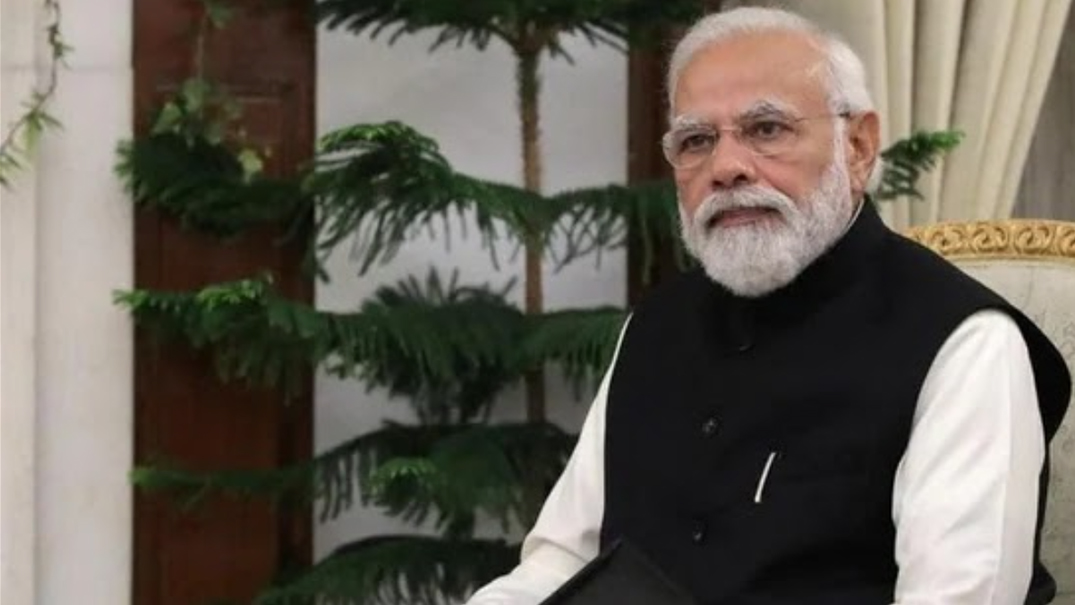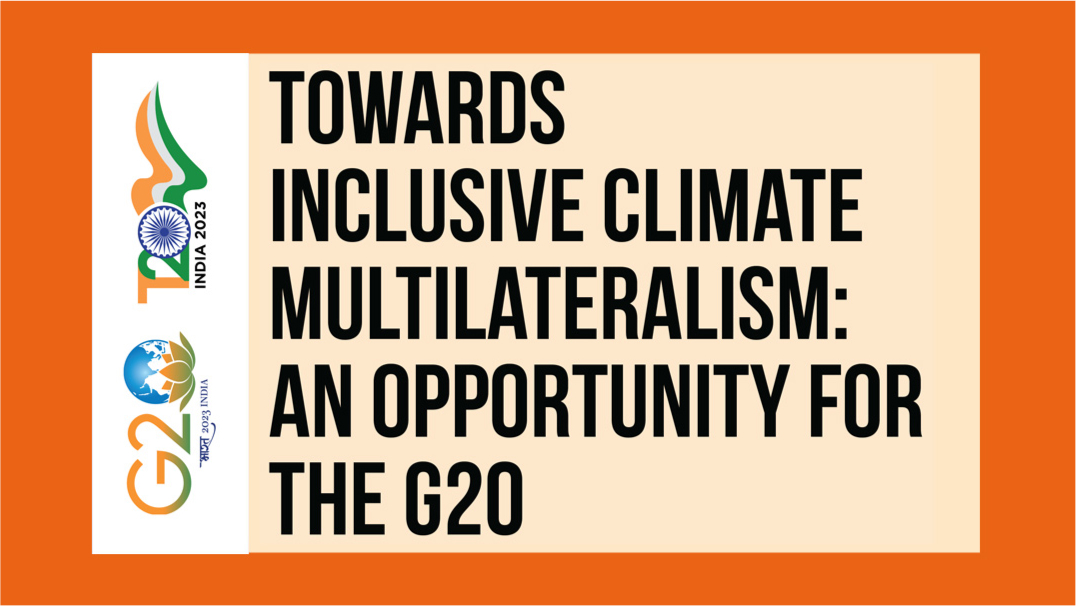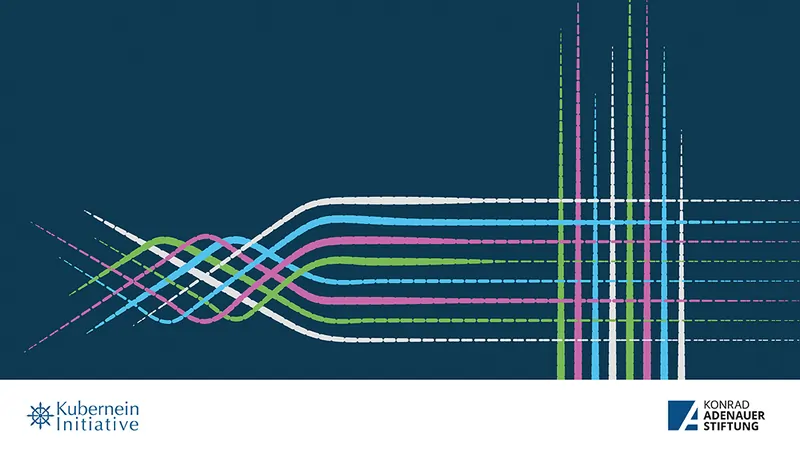India and the G20: Opportunity to create a lasting inclusive approach
India’s upcoming 2023 G20 presidency, beginning in December 2022, provides an opportunity to consolidate its growing foreign policy footprint as well as discuss avenues and challenges for a more inclusive approach to the G20 as a means for smarter economic growth and development globally. India’s presidency comes at a critical stage in world affairs where deep rooted fault lines are emerging, and transformative solutions are needed. By championing the need for equity and an inclusive lens, where voices of the most vulnerable nations are heard in global governance, India has an important role to play.
This marks the first time India will host an event of this scale, while also holding the SCO chair for 2023, and thus expectations are high, both within India and at a global scale. Through the G20, India has a unique opportunity to consolidate and coordinate South-South Cooperation, ensure issues are streamlined and bring in greater focus on long term strategic needs. India has identified key priorities of importance to developing countries in diverse social and economic sectors and will focus on areas that impact the most vulnerable and disadvantaged. These range from Lifestyle For Environment (LiFE); women’s empowerment; digital public infrastructure and tech-enabled development in areas ranging from health, agriculture to climate financing; circular economy; global food and energy security; green hydrogen; disaster risk reduction and resilience; and multilateral reforms, amongst others. At the very heart of all these tracks and engagements through the year, India can ensure that a strong gender and inclusive lens is cross-cutting and is prevalent as a norm, thus creating an innovative framework that countries can adopt going forward.
While the G20 was originally constituted with economic objectives in mind to achieve international financial stability post several global financial crises, over the years, the range of the topics considered within the grouping has expanded considerably. Amidst a global recession and growing food and energy crises, it is time to mainstream the concepts of inclusivity into the wider agenda in 2023 and create a system that can be carried forward. While gender may not have been a consideration during the formation of the G20, it is crucial now more than ever that it is included. It is no longer smart to plan for economic recovery and growth without factoring in women’s empowerment. Global macroeconomic policies on regional and international trade, movement of goods and services, strengthening supply and value chains, must be cognisant of the role that half the population – women – have to play. As Mr Harsh V Shringla India’s Chief G20 Coordinator said at an event in Delhi early August 2022, “as the largest democracy (PM referred to India as the ‘mother of democracy’), the third largest economy of the world in PPP terms and 2nd most populous country of the world, and at a time of growing economic challenges across the globe in the wake of the Covid pandemic and the Russia-Ukraine conflict, we look forward to making a meaningful contribution in the G20, to support faster, sustainable and inclusive growth.” Sustainable and inclusive growth cannot be considered without greater participation of women and a more inclusive agenda.
Gender as a mandate is clearly being mainstreamed through the various meetings of various multilateral groupings. It is expected that India will cover this issue in some capacity, particularly through the W20 (or Women 20), an important official G20 engagement group, and the ‘EMPOWER’ track of the B20 (or Business 20) group. However, it is our argument that a stronger gender lens needs to be incorporated within the main G20 agenda, and not solely fall under the ambit of the W20 or a few select groups. While the W20, EMPOWER, and the other groupings are necessary to delve deeper into specific areas of engagement and can drive the agenda forward through detailed action, a more inclusive approach can be brought into all engagement groups. It would serve our long-term goals of economic growth and development if such a consideration was was maintained at the highest level, and looped back in to Track 1 level G20 dialogue. It would be a unique attempt and strong message that India is serious about its global responsibility, especially to countries that often bare the highest brunt of unfair global systems. In bringing gender to the G20 agenda at the highest levels, there is an opportunity for India to mainstream a discourse that is also more representative of the global south. The fact that the G20 presidency is held by four global south countries (Indonesia in 2022, India in 2023, Brazil in 2024, and South Africa in 2025) provides for greater and stronger cooperation on issues that pertain to the broader Global South, keeping the diversity of communities and a human centric approach at the core.
The pandemic which disproportionately impacted women will require gender-specific economic and health policies to make a full and just recovery that will in turn aid in women’s participation in the economy. In India, research shows that women made up just 24% of the workforce before the pandemic, yet accounted for 28% of all job losses as the pandemic took hold. Women on average lost over two-thirds of their income during the lockdown. The idea of inclusion also needs to go beyond gender and the conversation must also include all marginalised and vulnerable communities. It is also useful to integrate the G20’s goals with India’s own domestic gender policies and also learn from our positive experiences. For example, there have been various initiatives to improve women’s access to financial inclusion in India, and to encourage and incentivise women’s entrepreneurship. The robust economic growth that the G20 hopes to achieve can be made possible with greater coordination on such issues and also by ensuring that some of the siloed discussion between groupings is coordinated.
Climate change, adaptation and resilience measures are also a cross-cutting issue and an area that needs a strong gender focus for smarter processes and implementation. India’s 2070 net Zero Target, enumerated by Prime Minister Modi at COP 26, will require gender-specific climate action to meet its ambitious goals. COP 26 makes mention of embedding gender equality in climate action, stressing that climate resilience initiatives that are gender blind or overlook women’s roles as stakeholders will lead to inequitable outcomes, and ultimately not achieve the targets set out. Amidst all these considerations, the element of continuity must not be overlooked. It is important to carry forward the work that the current presidency under Indonesia has been doing. The G20 troika consisting of Italy, Indonesia, and India was set up in a way to ensure a smooth transition, and India must continue the momentum of the successes under both Italy and Indonesia’s presidencies. There is an opportunity for India to leverage the G20 dialogue and engagement in a manner that is both lasting for the country and world with a clear human and environment centred approach. Our intention for a more just, sustainable and equitable future has been made clear; by creating a framework and vision that mainstreams a gender lens in our overall approach, this intention can be realised.
This article was originally published in The Hindustan Times, on October 10, 2022.



